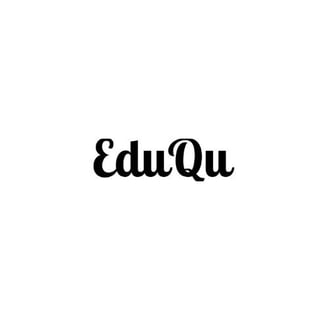

Education is the process of gaining knowledge, skills, values, and understanding that helps people grow intellectually, emotionally, socially, and morally. It goes beyond textbooks—education teaches us how to think, solve problems, make decisions, and live meaningfully.
✅ Why Education Matters
Empowers minds to think critically and creatively
Builds character by teaching responsibility, respect, and empathy
Prepares individuals for careers, challenges, and real-life situations
Opens doors to opportunities, freedom, and a better future
Strengthens society by promoting equality, innovation, and progress
The Purpose of Education
Empowerment
Education gives people the tools to think independently, make informed choices, and speak up for themselves and others.Opportunity
It opens doors to jobs, careers, and a better standard of living. It breaks cycles of poverty and creates possibilities for all.Critical Thinking
Education teaches us not just what to think, but how to think—to ask questions, challenge ideas, and seek truth.Citizenship
An educated person contributes to their community, respects diversity, and works for a better, more just society.Lifelong Growth
Learning doesn't stop after school—education continues throughout life, helping us adapt, grow, and evolve.


🧠 The True Purpose of Education
Education is not just about remembering facts. It’s about:
Understanding the world
Improving yourself
Making a positive impact on others
Whether formal (in schools and universities) or informal (through life experience and self-learning), education shapes who we are and what we can become.


Education Really Means
Education is not limited to classrooms, teachers, or exams. It includes:
Formal learning in schools, colleges, and universities
Informal learning through experience, observation, and self-study
Moral and emotional education, which shapes character and empathy
Practical education, which prepares us to solve real-world problems
Education helps us understand who we are, how the world works, and what we can contribute to society.


🎓 The Power and Purpose of Education
Education is the heartbeat of human development. It is the lifelong process through which we acquire knowledge, develop skills, shape values, and discover our purpose. It’s not just about learning facts—it’s about unlocking human potential.
Education begins from the moment we start asking questions and continues throughout our lives. It shapes how we think, how we feel, how we act, and how we contribute to the world.


🌟 What Education Really Gives Us
Knowledge and Understanding
Education helps us make sense of the world. It teaches us about history, science, language, art, and the human experience.Wisdom and Judgment
It trains us to think critically, evaluate truth from falsehood, and make thoughtful, ethical decisions.Confidence and Voice
A good education gives individuals the courage to speak up, to lead, to create change, and to stand for what’s right.Empathy and Values
Education is not only of the mind—it’s also of the heart. It builds character, kindness, respect, and social responsibility.Freedom and Opportunity
It opens doors—breaking the chains of poverty, ignorance, and injustice. It offers a pathway to a better life.
Education’s Role in Society
Promotes Equality: Education bridges social gaps and empowers marginalized communities.
Drives Innovation: It fuels creativity, science, technology, and progress.
Strengthens Democracy: It helps citizens make informed choices and uphold democratic values.
Protects the Planet: Environmental education fosters awareness, responsibility, and sustainable action.
Builds Peace: It teaches tolerance, cooperation, and global understanding.
Education is Everywhere
Education is not confined to classrooms or exams. It happens:
In conversations
In books
In failures and successes
In experiences
In everyday life
It is a lifelong journey, not a destination.


✅ In Summary
Education is the seed of every dream, the light in every dark place, and the bridge between what is and what can be.
It’s how we rise above challenges, how we shape our future, and how we leave the world better than we found it.
Types of Education
a. Formal Education
Structured and systematic.
Takes place in schools, colleges, and universities.
Involves a curriculum, certified teachers, and usually leads to qualifications or degrees.
b. Informal Education
Happens outside traditional learning environments.
Includes learning from family, peers, media, travel, or work.
Often unstructured but deeply influential.
c. Non-Formal Education
Organized learning outside formal systems.
Examples: adult literacy programs, community education, vocational training.
Levels of Education
Early Childhood Education (Preschool/Kindergarten): Focuses on basic motor skills, language, and socialization.
Primary Education: Builds foundational skills in reading, writing, and arithmetic.
Secondary Education: More advanced subjects; often includes preparation for college or careers.
Tertiary Education: Higher education in colleges or universities (bachelor’s, master’s, doctoral levels).
Continuing/Adult Education: Ongoing learning for adults, often for career development or personal interest.
Goals of Education
Intellectual Development: Critical thinking, problem-solving, reasoning.
Social and Emotional Growth: Communication, empathy, teamwork.
Moral and Civic Understanding: Ethics, responsibility, citizenship.
Career Preparation: Technical and professional skills.
Lifelong Learning: Adapting to changes and acquiring new skills throughout life.
Importance of Education
Empowerment: Helps individuals gain confidence and independence.
Economic Growth: A more educated workforce increases productivity.
Social Equity: Reduces inequality and promotes inclusion.
Innovation: Drives scientific and technological progress.
Health and Well-being: Educated people tend to make better health decisions.
Challenges in Education
Access and affordability
Quality and relevance of curriculum
Teacher shortages and training
Inequities based on gender, region, or socioeconomic


Education is the process of facilitating learning, or the acquisition of knowledge, skills, values, beliefs, and habits. It is a lifelong journey that begins in early childhood and continues throughout life in various formal and informal settings. Here’s a more detailed look at the different aspects of education:


Philosophical Foundations of Education
Education is shaped by different philosophies that influence teaching styles, curriculum, and goals. Some major ones include:
Progressivism (John Dewey): Emphasizes learning by doing, critical thinking, and preparing students for a democratic society.
Essentialism: Focuses on core academic subjects and traditional methods.
Constructivism (Piaget, Vygotsky): Learners construct their own understanding through experiences.
Humanism (Maslow, Rogers): Education should develop the whole person, including emotional and social growth.
Perennialism: Teaches enduring themes and universal truths through classical texts.
Modern Trends in Education
a. Student-Centered Learning
Encourages students to take active roles.
Teachers act as facilitators rather than lecturers.
b. Competency-Based Education
Progress is based on demonstrating mastery, not time spent in class.
Popular in vocational and online learning.
c. Inclusive Education
Integrates all learners, regardless of physical, mental, or learning challenges, into mainstream education.
Focuses on accessibility and equality.
d. Global Citizenship Education
. Prepares students to engage with global issues like climate change, human rights, and peacebuilding.




Global Perspectives on Education
a. Developed Countries
Strong focus on digital literacy, STEM education, critical thinking.
Issues include student mental health, over-standardization, and declining attention spans.
b. Developing Countries
Often face challenges like low school enrollment, lack of teachers or resources, and gender inequality.
International aid and non-governmental organizations (NGOs) often support educational access.
c. Education and Gender
Girls' education is especially transformative—boosts health, economic development, and social equality.
Many global campaigns (e.g., Malala Fund) advocate for girls’ right to education.
Role of Technology in Education
a. E-Learning
Online courses (e.g., MOOCs), virtual classrooms, and digital textbooks make learning more flexible and accessible.
b. AI and Personalized Learning
Adaptive platforms use AI to tailor instruction to each learner’s pace and style.
c. Gamification
Learning through games increases engagement and retention.
d. Virtual and Augmented Reality
Used in fields like medicine, engineering, and history to simulate real-world experiences.
The Future of Education
a. Lifelong Learning
Workers will need to continually update their skills due to automation and AI.
Micro-credentials and online certificates are gaining popularity.
b. Hybrid Learning Models
A mix of in-person and online learning could become the norm.
c. Skills of the Future
Creativity, emotional intelligence, digital fluency, and critical thinking are becoming more important than rote knowledge.
d. Ethical and Environmental Education
Climate literacy, sustainability, and digital ethics are becoming core subjects.




Education Insights
Explore articles on education, life, and scientific discoveries.


Science Exploration
Discover the wonders of science and education together.






Life Lessons
Gain insights on life experiences and educational journeys.
Exploring education, life, and science through articles.
Knowledge
Growth
Copyright © 2025 EduQu. All rights Reserved.
Follow us
EduQu

